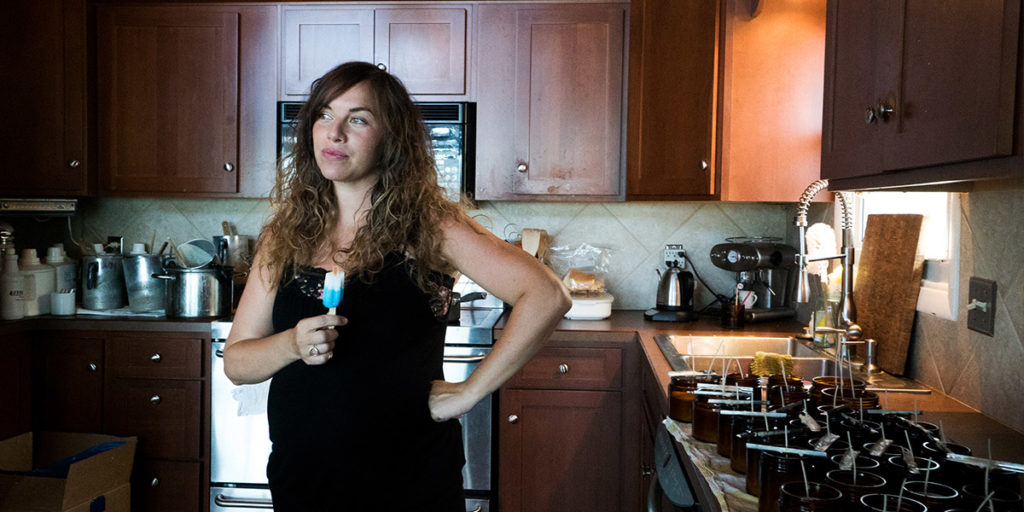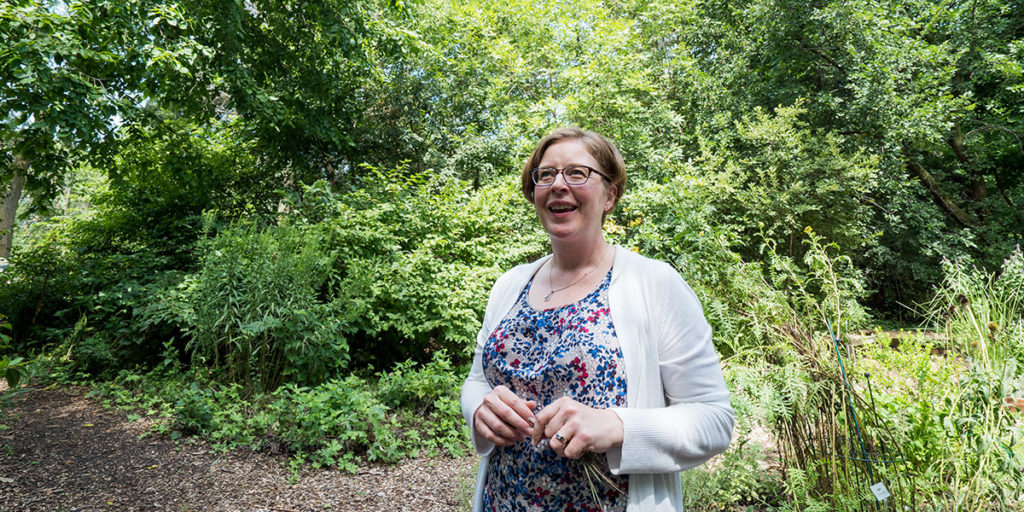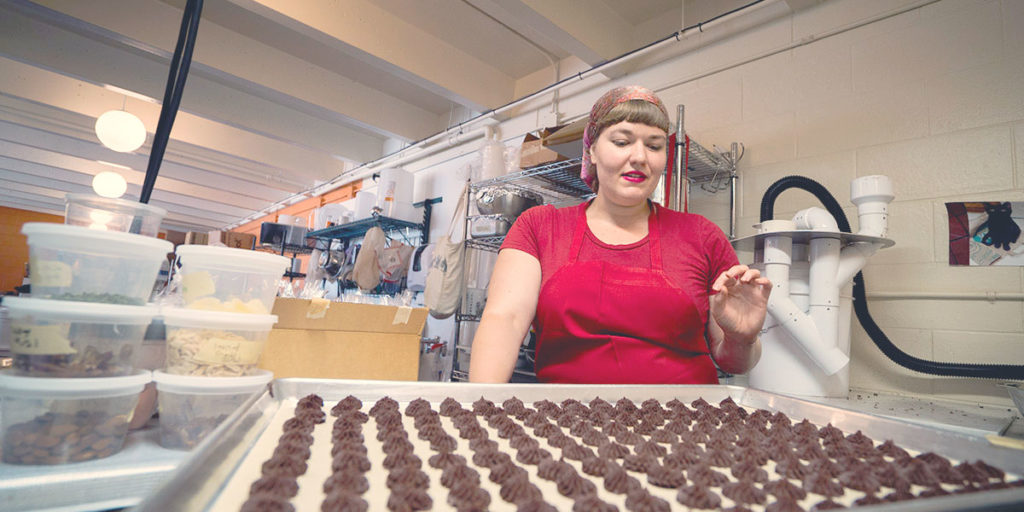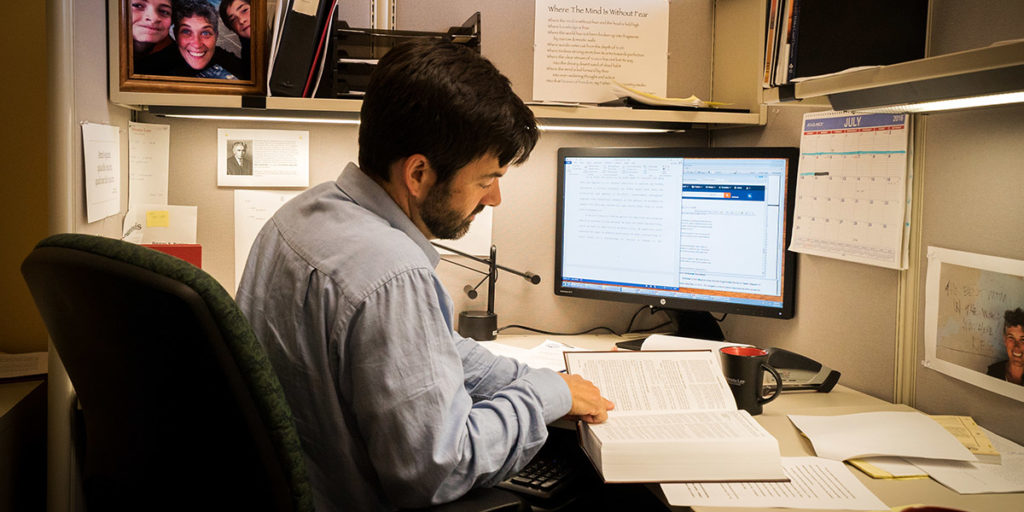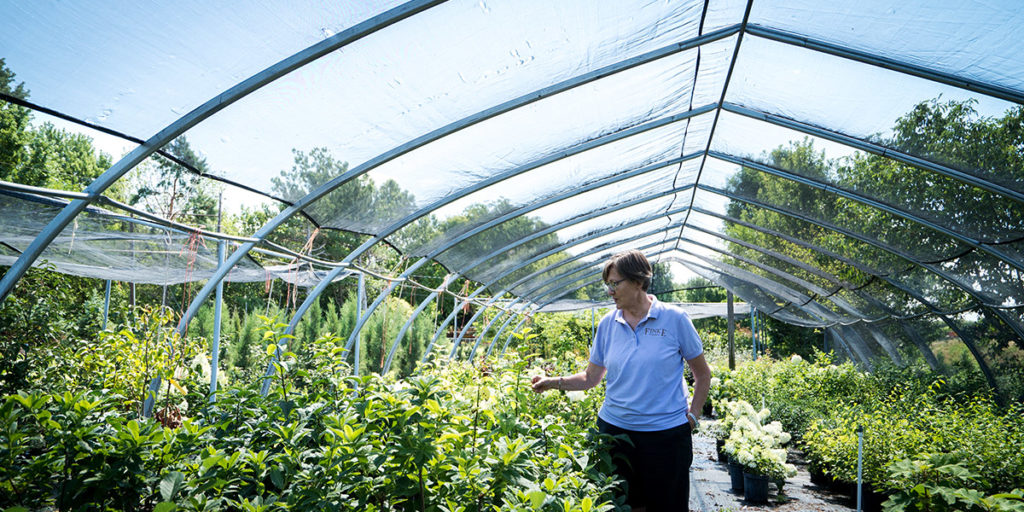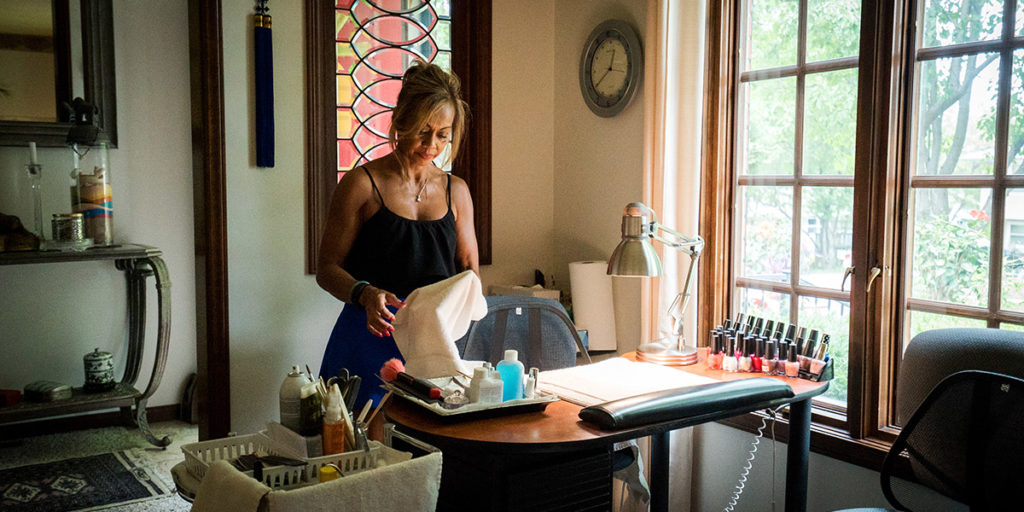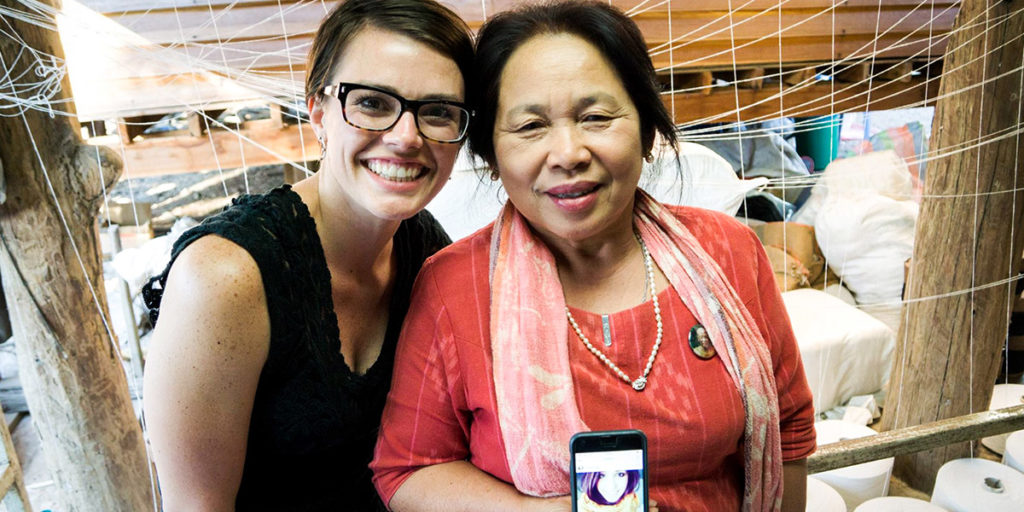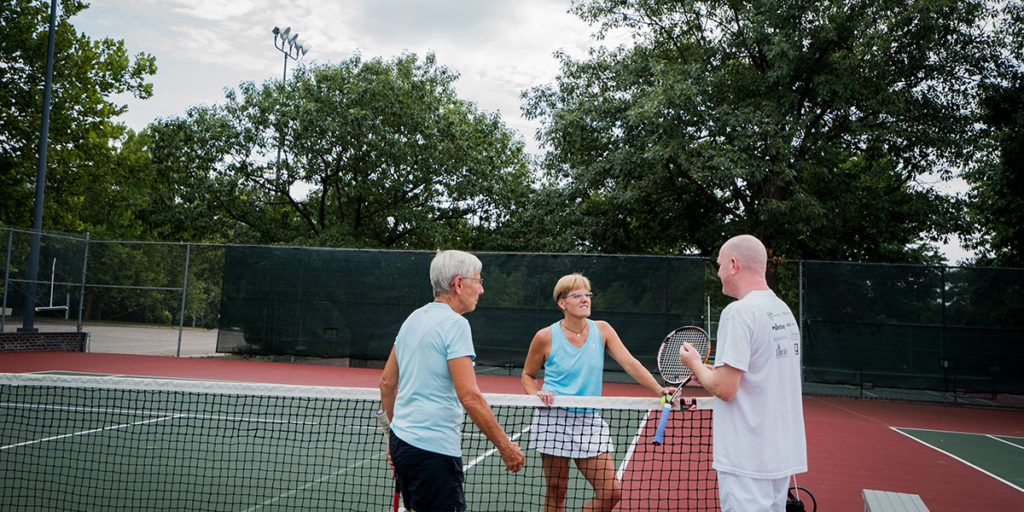
When people meet Kevin Heim they quickly notice that he’s all about tennis.
From his Wilson-branded clothing to his light but permanent tan lines, Kevin knows tennis because he’s been playing or coaching for the better part of 30 years. He’s the current executive director at Woods Park Tennis Center, but he laughed about the fact that he never thought he’d be living in Lincoln.
When Kevin was in high school, he remembers hearing a professional tennis player say, “Tennis is like an education, it can write a ticket to just about anywhere…” and that thought stuck with Kevin as he navigated his life on and off the court.
As a kid, Kevin played any and every sport he could. He grew up in a cul-de-sac in Ralston, Nebraska, where he and his friends would spend hours playing games with whatever balls and bats they could find in their garages. Kevin said at one point he pulled out his dad’s old, wooden tennis racquet and used it in a game, but the racquet broke after just a few swings.
The summer after 5th grade is when Kevin really started to zero-in on tennis. He saw a flier at school for summer tennis lessons and he and his friends signed up. The classes were very casual, Kevin said, and while they learned a few key skills, the ‘lessons’ quickly diverged into a competition of who could hit the ball the furthest. However, he quickly saw that tennis was fun.
Over the next few years, Kevin and his friends rode their bikes to the local tennis courts to play for 3 hours at a time. Then, they’d ride home, order a pizza, watch the professionals play on TV and then go back out to try and hit some of the shots they’d seen on TV.
During his freshman year of high school, Kevin made the varsity tennis team. He didn’t have many expectations, but was excited to learn more and be on a team with experienced players.
When it came time for college, Kevin received a tennis scholarship to play at Midland University in Fremont, Nebraska. He loved his time on the court and went to Nationals where he realized that tennis was so much bigger than just Nebraska or the U.S.
Kevin earned his education degree and then moved to Milwaukee where he taught at a high school and coached the tennis team. During the summers he worked at a tennis club where he grew the program from 60 kids to 600 adults and junior players over an 11-year period.
His summer work started out as a way to fill his time, but then it became about sharing his love of tennis with students. Kevin said tennis often gets labeled as a sport that’s reserved for country club members, but that was never the case for him. He loved that tennis helped him be a well-rounded kid and it was a fun way to spend his time.
Kevin was extremely successful as a high school coach and with his summer work, but he still felt like he wanted to do more. He heard about a job opening for the head tennis pro at Wood Tennis and he decided he’d try his hand at moving back to Nebraska.
But it wasn’t an ideal move. When Kevin came to Lincoln in 2009 he was in his early 30s and there wasn’t much to do in town. The situation he walked into at Woods Tennis wasn’t ideal either.
The facility was falling apart, they had staffing issues and their numbers were steadily decreasing. The place needed help, but that’s what attracted Kevin to the job.
Before he’d even landed the job, Kevin was dreaming up new facilities, programs and initiatives to help Woods Tennis grow. The center had a long and strong history and he knew he could help rebuild that – which is exactly what he’s done.
Kevin walked out the front doors of Woods Tennis and hung a right, walking toward a chain-length fence that zoned off a construction area.
“That’s it,” he said, pointing to a large plot of dirt.
Next spring, that dirt will be replaced by a new, indoor tennis facility, equipped with 6 courts. And those big white bubbles that currently house the indoor courts, they’ll be gone, a fact Kevin is more than happy about.
Since his move to Lincoln, Kevin has worked to rebuild the reputation of Woods Tennis. He’s restructured the classes, hired a new tennis pro, spearheaded a Capital Campaign and taken over as the executive director. Woods Tennis has become a place for everyone in the community – young, old and people of all socioeconomic backgrounds.
Kevin said he’s also loved coaching a group of wheel chair athletes for the past eight years. Several of the adult chair players have participated in tournaments all over the country, with a handful of them winning their division at the US Open.
He’s seen the community at the Center grow and thrive despite its dated facilities. And while Kevin said he can’t wait for the new facility to be open in the spring, seeing adults and kids come early and stay late in less than ideal conditions has shown him that the culutre at Woods Tennis trumps the physical setting.
Kevin has also earned a reputation of his own. Sure, people around town know him as the guy who runs Wood Tennis, but he’s also the guy who found his own story through tennis.
He said the sport taught him a lot about himself. About discipline and determination, hard work and perseverance. It was through tennis that Kevin met his wife, developed a passion for the community and worked to make the sport fun and accessible to as many people as possible.
So much of Kevin’s story revolves around tennis. But there’s also so much of Lincoln’s tennis culture that’s connected to Woods Tennis and directly connected to Kevin Heim – and that’s a reputation he’s proud to have earned.
